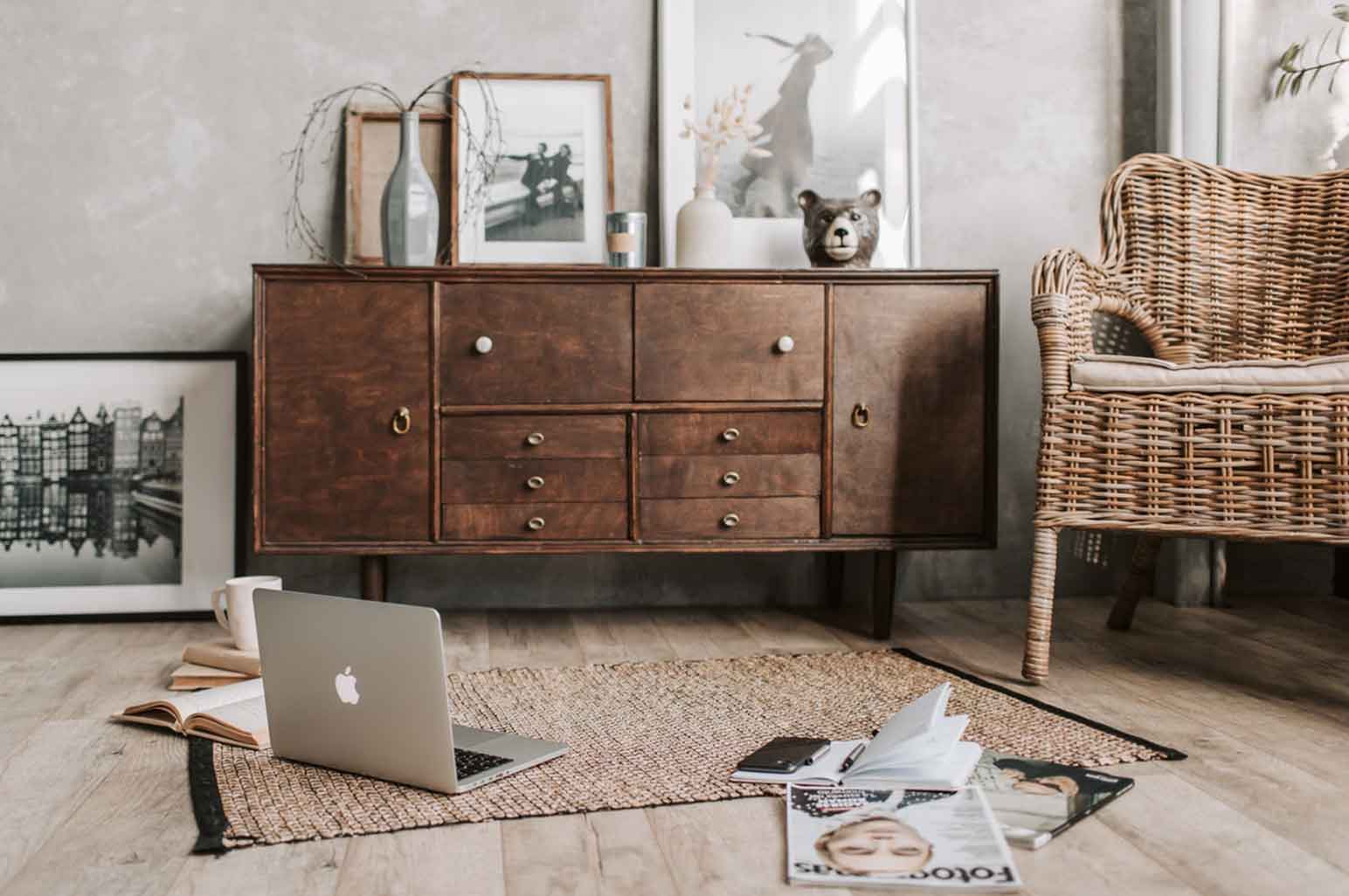
Choosing the right type of wood for your furniture can feel rather impossible. The market is filled with many options, each having different qualities such as color, grain, density, and finish. It can take quite a lot of time and effort to find durable wood that can be used to create versatile pieces of furniture. Moreover, when buying wood, you should think about what would happen if you wanted to restore or resell your furniture at a later stage. Before committing to a certain type of wood, you should understand its properties and qualities to decide whether it is the right fit for the furniture you want to create. Read through our article to learn how to choose the right type of wood for your furniture.
SOFTWOOD
Despite what many people would think, hardwood is not always denser and harder than softwood. The terms “hard” and “soft” are only used to distinguish the sources of the wood. Hardwood is derived from flowering trees, while softwood comes from conifers like pine, juniper, spruce, fir, yew, and redwood. Softwoods are usually evergreen, making them less dense and easier to cut down. It is often called “non-porous” wood since it doesn’t contain vessels. This allows it to easily absorb adhesives, allowing for better finishing. It is usually used in building materials as well as in the cardboard and paper industries.
It has high sap content, light color, and loose grain. Though, it has poor fire-resistant properties. The fact that softwood is lightweight and has a fine structure makes it a good choice for furniture. Parana Pine, Eastern White Pine, Lodgepole Pine, Red Cedar, which is best for outdoor furniture, closets, chest linings, and closet interior, Yew and Western Hemlock for cabinets, are softwood options to consider.
HARDWOOD
Hardwood comes from flowering trees such as oak, walnut, and maple. These trees grow slowly and annually shed a lot of leaves, which makes their wood fibers dense. Because of the time that it takes to grow, hardwood is comparably expensive. On the plus side, it is less likely to rot or decay, making it a durable option for furniture. It is also low maintenance and has close grain, not to mention that it is fire resistant and has low sap content. People usually use it for flooring for these reasons.
Hardwood is a good option for furniture, as it comes in different colors, plate patterns, and styles. However, not all types of hardwood will make good furniture. If you decide to go with hardwood for your furniture, then consider red oak. Reviews suggest that quality oak furniture comes in various styles and designs that will suit your taste. Birch is usually used for cabinets, while mahogany, East Indian rosewood, and walnut are commonly used for high-end furniture. On the other hand, maple, cherry, beech, and teak are used in making chair legs and backs.
EVALUATING WOOD
To be able to properly evaluate wood, you need to understand its qualities. Signs of high-quality timber, or wood, would be its sweet smell and its shiny appearance. These signs indicate that it is freshly cut. The highest quality wood would be sanded to at least a 60 grit finish. The level right beneath would be used in construction. The last level would be used in similar contexts and packaging. Other appearance grading scales would depend on qualities like deformation, discoloration, knots, grains, and deformation. A light color in wood usually means that it is not as strong. Ideally, you should search for dark color in wood, depending on the initial color of that type of wood. For example, a dark brown in Walnut, and a golden yellow in Deodar.
High-quality wood should be highly durable and resist fungal attacks, termites (like cedar and redwood), other pests, and climate changes. Wood that is pressure treated is more resistant to climate changes and pests. Elasticity is also a quality in fine wood that would allow it to regain its shape with high accuracy. The arrangement of fibers in timber should be firm, straight, and compact to ensure strength. Wood, especially when used in furniture-making, should be fire-resistant. It should also be hard; hardness is usually measured on a scale of 0 (the weakest) to 4,000 lbs (the hardest). Brazilian walnut scores 3,684 lbs, making it one of the hardest wood types. If you knock on wood, it should sound hollow. If it sounds dull, then it is probably decaying. It should be strong; the higher the density, the stronger it is. It should have the lowest water permeability possible, and it should be easy to work with.
Choosing the perfect wood to use for your furniture can be a very confusing process. There are many types to choose from and many aspects to consider. This is why we have put together this guide to help you choose the suitable type of wood for the type of furniture that you want to build. So, before you start any DIY work, make sure you go over the above points carefully to make the right decision and avoid any unpleasantries that may affect the outcome.
